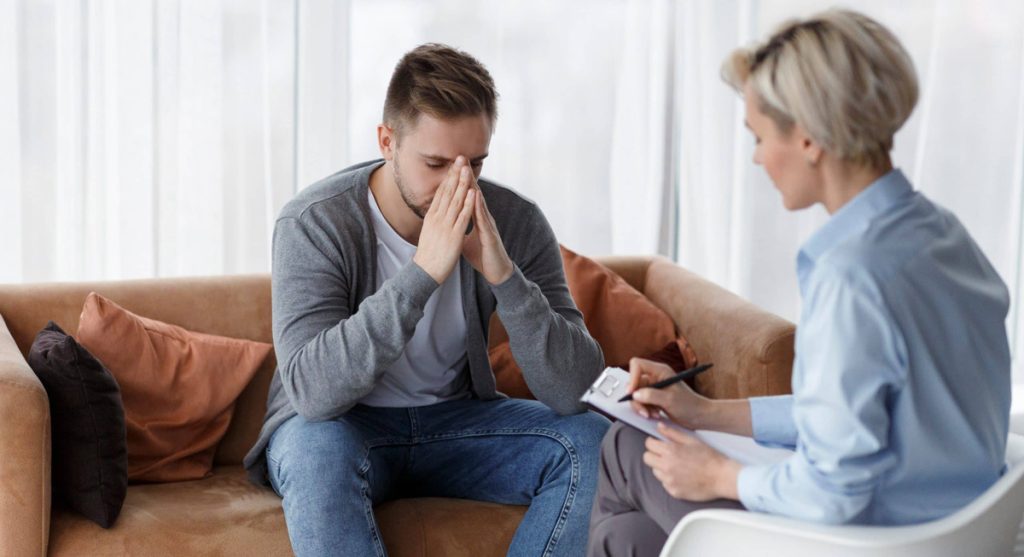Anxiety is a common emotional response that everyone experiences at some point in their lives. While it’s a normal reaction to stress or challenging situations, excessive and prolonged anxiety can have a significant impact on our mental health. The good news is that there are several effective ways to manage and alleviate anxiety without resorting to medication. In this article, we will explore these strategies and discuss how anxiety can affect our mental well-being.
Table of Contents
Introduction
Anxiety is a natural response that our bodies use to alert us to potential threats. However, when anxiety becomes overwhelming and starts affecting our daily lives, it’s essential to find healthy ways to manage it.
Understanding Anxiety and Its Effects on Mental Health
Anxiety can manifest as constant worry, restlessness, irritability, and even physical symptoms like a racing heart or upset stomach. Over time, chronic anxiety can contribute to mental health issues like depression and affect overall well-being.
The Importance of Addressing Anxiety Without Drugs
While medication can be helpful for severe cases of anxiety, non-drug approaches offer sustainable, long-term solutions that empower individuals to take control of their mental health.
Effective Ways to Fight Anxiety
Practice Deep Breathing and Meditation
Deep breathing and meditation can calm the nervous system, reduce stress hormones, and promote relaxation.
Engage in Regular Physical Activity
Exercise releases endorphins, which are natural mood lifters. Regular physical activity also helps reduce tension and improve sleep.
Prioritize Healthy Sleep Patterns
Adequate sleep is crucial for mental well-being. Establish a bedtime routine and create a comfortable sleep environment.
Cultivate a Supportive Social Network
Connecting with friends and loved ones provides emotional support and reduces feelings of isolation.
Embrace Mindfulness and Grounding Techniques
Mindfulness involves staying present in the moment while grounding techniques help bring focus back during moments of anxiety.
Limit Caffeine and Sugar Intake
Caffeine and sugar can exacerbate feelings of anxiety. Opt for water, herbal tea, and balanced meals.
Try Relaxation Techniques
Progressive muscle relaxation, visualization, and aromatherapy can help alleviate anxiety symptoms.
Seek Professional Help and Therapy
Therapists can provide tools and techniques to manage anxiety. Cognitive-behavioral therapy (CBT) is particularly effective.
Nurturing Your Mental Health
Nurturing mental health goes beyond managing anxiety. Engage in hobbies, practice self-compassion, and maintain a healthy work-life balance.
Conclusion
Anxiety is a common human experience, but it doesn’t have to control our lives. By adopting a holistic approach that includes mindful practices, physical activity, and seeking professional guidance, you can effectively manage anxiety and cultivate a positive state of mental well-being.
FAQs
1. Can anxiety be completely eliminated without medication?
For many individuals, anxiety can be managed effectively through non-drug approaches. However, severe cases might benefit from a combination of therapies.
2. How does exercise help with anxiety?
Exercise releases endorphins, which are natural mood enhancers. It also reduces stress hormones and promotes relaxation.
3. Is professional help necessary to manage anxiety?
While many people can benefit from self-help strategies, consulting a mental health professional provides tailored guidance and support.
4. How does a supportive social network impact anxiety?
Connecting with others reduces feelings of isolation and provides emotional validation, helping to alleviate anxiety symptoms.
5. Can lifestyle changes truly improve mental health?
Yes, adopting a balanced lifestyle that includes proper sleep, a healthy diet, and engaging in activities you enjoy can significantly improve mental well-being.



